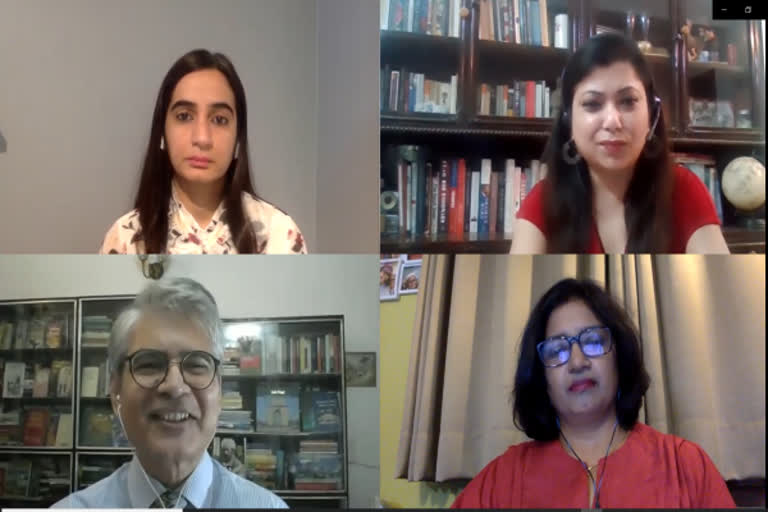New Delhi: "Days after taking office, we shocked the Washington Establishment and withdrew from the last Administration's job-killing Trans-Pacific Partnership. I then approved the Keystone XL and Dakota Access Pipelines, ended the unfair and costly Paris Climate Accord, and secured, for the first time, American Energy Independence,” said Donald Trump at the final night of the Republican National Convention as he officially accepted his re-nomination as the Presidential candidate. “I withdrew from the terrible, one-sided Iran Nuclear Deal,” Trump further cited as an example of his America First Policy in his 71-minute long speech.
So what is at stake for the world and international organisations in the race for White House? In this episode of Battleground USA 2020, senior journalist Smita Sharma asked if the United States would become more inward-looking and shy away from its leadership role in global organisations if Trump were to return to power.
“What is at stake is the leadership role that the United States has played since January 1942. A long long journey from the Washington conference that set in process the move to create the United Nations. The leadership role that the US acquired over these decades has somehow been dented if not diluted in the past 5 to 6 years. The outcome of this election will have a major impact on that central issue,” said Asoke Mukerji, India’s former Permanent Representative to the United Nations in New York.
“Withdrawing from institutions has a downside which has to be understood. In 2006 the UN General Assembly created the Human Rights Council. John Bolton was the US Ambassador and he voted against the creation of this council along with three other countries that voted against it. But the council was created by a majority of 170 countries. Now the United States sat out three years. Did not seek elections to the UNHRC. And in those three years, the Human Rights Council set its procedures including the procedure to deal with Israel. So if you fast forward it to Ambassador Nikki Haley’s time they criticised the procedure. But if you are not inside the room when the procedures are drafted then you cannot do anything about it from the outside,” explained the retired diplomat further.
Also read:Decoding Republican National Convention and Trump's speech
United States under Donald Trump has pulled out of several international agreements like the Paris Climate Act to the Iran Nuclear Deal and has cut the funding of several United Nations agencies and multilateral pacts pertaining to trade and environment or weakened other global bodies like World Trade Organisation (WTO) through its controversial decisions. So if Joe Biden were to win the November race would his administration be able and willing to reverse these decisions and strengthen global multilateralism? Would the Iran nuclear agreement be back on the table for the Biden administration at a time when strategic cooperation has increased between Iran, China and Russia?
“The Obama administration went ahead with a deal which was quite heavily skewed in favour of Iran. It may not be the most popular view but the fact is Iran managed to bargain such a great deal for themselves. The kind of clauses that are there in terms of withdrawals, inspections, each of those clauses if you look at-Iran is known for its bargaining tactic,” says Dr Rajeshwari P Rajagopalan, a former technical advisor with the United Nations. Dr.Rajagopalan who is a Distinguished Fellow and Head of the Nuclear and Space Initiative at Observer Research Foundation (ORF) believes irrespective of the international sanctions or the hurdles Iran is going to pursue a nuclear program which will make it tougher for a Biden administration to do a rethinking about the agreement especially with the China shadow on Tehran.
“It is going to put team Biden in a very tight spot because Biden team has also come out proving he has an even harsher tone on China.
How do you deal with China problem and challenge. China problem has become magnified in the last few years. China has taken over or getting into a leadership role in many of the UN organisations. So US has ceded away a lot of strategic space to China. Biden now will be in a fix in how you manage both the Iran-China combination of powers, or even Iran-China-Russia all coming together in a sense and they just had a naval exercise towards the end of last year,” she said.
